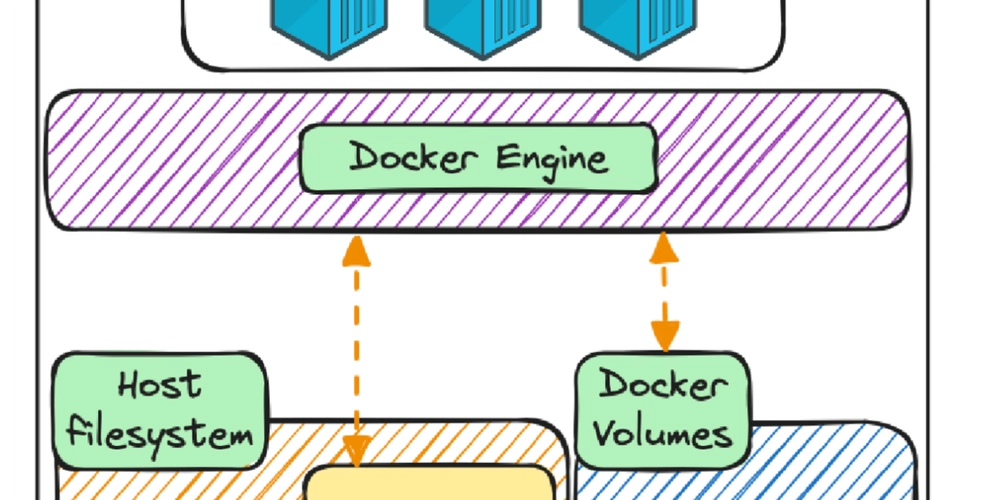What Are the Practical Applications Of Haskell Programming?
Haskell is a robust, statically-typed, purely functional programming language with strong theoretical underpinnings. Known for its lazy evaluation and advanced type system, Haskell is often the language of choice for developers interested in functional programming paradigms. But what are the practical applications of Haskell in the modern software landscape? Let's delve into where Haskell truly shines. 1. Academic Research and Prototyping Haskell's origins in academia make it a popular choice for research in programming languages and functional programming. Its powerful type system, including features like type inference and algebraic data types, allows researchers to rapidly prototype complex algorithms while ensuring code correctness. 2. Financial Analysis and Processing The financial industry relies heavily on mathematical precision and performance. Haskell's strong type system and support for high-level abstractions make it ideal for building intricate financial models, risk management tools, and trading algorithms. Its ability to effortlessly handle concurrent tasks is a significant asset in high-frequency trading applications. 3. Compilers and Language Development Haskell's foundation in formal language theory makes it an excellent choice for building compilers and domain-specific languages (DSLs). Many modern compilers, including those for innovative languages, originate from Haskell, leveraging its powerful parsing libraries and robust type-checking capabilities. 4. Web Development While not traditionally associated with web development, Haskell is gaining traction in building web applications. Platforms like Yesod and Servant allow developers to build type-safe, high-performance web services with fewer errors and a focus on maintainability. The growing ecosystem supports both back-end and front-end development, bridging the gap with JavaScript-based tools. 5. Data Analysis and Processing Haskell's capacity to handle concurrent and parallel computations makes it suitable for data-intensive applications. Libraries such as Haskell's Data.Text and Data.Vector offer efficient data processing capabilities. Moreover, the language's functional nature allows for writing concise and declarative code, simplifying complex data transformations. 6. System Tools and Automation Leveraging Haskell's ability to manage IO operations through constructs like the IO Monad, it's well-suited for building system tools and automation scripts. Its robustness and efficiency make it dependable for tasks ranging from network servers to command-line utilities. 7. Artificial Intelligence The abstraction capabilities and type safety of Haskell make it a suitable candidate for AI research and implementations. It aids in building scalable AI models by allowing developers to express complex ideas in clean, concise terms, ensuring reliability and reducing logical errors. Conclusion Incorporating Haskell into your projects can provide a robust framework for developing reliable, efficient, and maintainable applications. Whether you're interested in Haskell programming for web development or exploring functional programming in Haskell, the language offers a wide array of practical applications where its unique features can be effectively leveraged. As the demand for functional programming continues to grow, so too will the opportunities to apply Haskell across various domains.

Haskell is a robust, statically-typed, purely functional programming language with strong theoretical underpinnings. Known for its lazy evaluation and advanced type system, Haskell is often the language of choice for developers interested in functional programming paradigms. But what are the practical applications of Haskell in the modern software landscape? Let's delve into where Haskell truly shines.
1. Academic Research and Prototyping
Haskell's origins in academia make it a popular choice for research in programming languages and functional programming. Its powerful type system, including features like type inference and algebraic data types, allows researchers to rapidly prototype complex algorithms while ensuring code correctness.
2. Financial Analysis and Processing
The financial industry relies heavily on mathematical precision and performance. Haskell's strong type system and support for high-level abstractions make it ideal for building intricate financial models, risk management tools, and trading algorithms. Its ability to effortlessly handle concurrent tasks is a significant asset in high-frequency trading applications.
3. Compilers and Language Development
Haskell's foundation in formal language theory makes it an excellent choice for building compilers and domain-specific languages (DSLs). Many modern compilers, including those for innovative languages, originate from Haskell, leveraging its powerful parsing libraries and robust type-checking capabilities.
4. Web Development
While not traditionally associated with web development, Haskell is gaining traction in building web applications. Platforms like Yesod and Servant allow developers to build type-safe, high-performance web services with fewer errors and a focus on maintainability. The growing ecosystem supports both back-end and front-end development, bridging the gap with JavaScript-based tools.
5. Data Analysis and Processing
Haskell's capacity to handle concurrent and parallel computations makes it suitable for data-intensive applications. Libraries such as Haskell's Data.Text and Data.Vector offer efficient data processing capabilities. Moreover, the language's functional nature allows for writing concise and declarative code, simplifying complex data transformations.
6. System Tools and Automation
Leveraging Haskell's ability to manage IO operations through constructs like the IO Monad, it's well-suited for building system tools and automation scripts. Its robustness and efficiency make it dependable for tasks ranging from network servers to command-line utilities.
7. Artificial Intelligence
The abstraction capabilities and type safety of Haskell make it a suitable candidate for AI research and implementations. It aids in building scalable AI models by allowing developers to express complex ideas in clean, concise terms, ensuring reliability and reducing logical errors.
Conclusion
Incorporating Haskell into your projects can provide a robust framework for developing reliable, efficient, and maintainable applications. Whether you're interested in Haskell programming for web development or exploring functional programming in Haskell, the language offers a wide array of practical applications where its unique features can be effectively leveraged. As the demand for functional programming continues to grow, so too will the opportunities to apply Haskell across various domains.






































































































































































![[The AI Show Episode 145]: OpenAI Releases o3 and o4-mini, AI Is Causing “Quiet Layoffs,” Executive Order on Youth AI Education & GPT-4o’s Controversial Update](https://www.marketingaiinstitute.com/hubfs/ep%20145%20cover.png)






























































































































![[DEALS] Microsoft 365: 1-Year Subscription (Family/Up to 6 Users) (23% off) & Other Deals Up To 98% Off – Offers End Soon!](https://www.javacodegeeks.com/wp-content/uploads/2012/12/jcg-logo.jpg)


![From Art School Drop-out to Microsoft Engineer with Shashi Lo [Podcast #170]](https://cdn.hashnode.com/res/hashnode/image/upload/v1746203291209/439bf16b-c820-4fe8-b69e-94d80533b2df.png?#)









































































































































_Inge_Johnsson-Alamy.jpg?width=1280&auto=webp&quality=80&disable=upscale#)


































































































![The Material 3 Expressive redesign of Google Clock leaks out [Gallery]](https://i0.wp.com/9to5google.com/wp-content/uploads/sites/4/2024/03/Google-Clock-v2.jpg?resize=1200%2C628&quality=82&strip=all&ssl=1)













![New Apple iPad mini 7 On Sale for $399! [Lowest Price Ever]](https://www.iclarified.com/images/news/96096/96096/96096-640.jpg)
![Apple to Split iPhone Launches Across Fall and Spring in Major Shakeup [Report]](https://www.iclarified.com/images/news/97211/97211/97211-640.jpg)
![Apple to Move Camera to Top Left, Hide Face ID Under Display in iPhone 18 Pro Redesign [Report]](https://www.iclarified.com/images/news/97212/97212/97212-640.jpg)




































































































